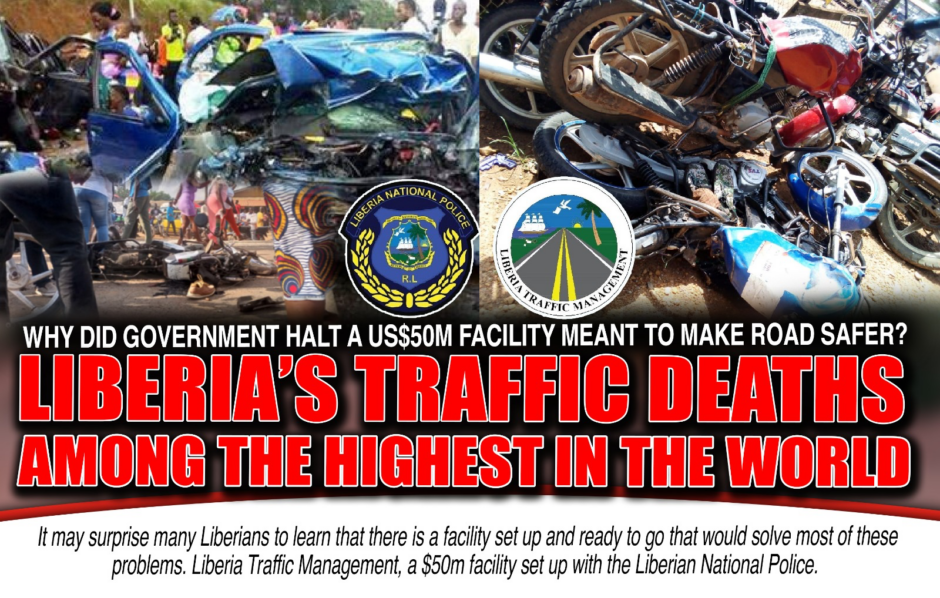
MONROVIA – It’s a tragedy that has touched almost every Liberian family. With one of the highest death rates from traffic accidents in the world, most Liberians feel a sense of fear when they enter a vehicle. That tragedy arrived for Erica T. Smart in March when her junior brother Lucky was riding from school on a tricycle when he was run over by a defective truck on the Monrovia-Robertsfield highway.
Five people died in the accident. Erica, who normally travelled to school with her brother, was not with him that day. Lucky was a 10th grade student of the African Dream Academy and the family’s only son.“It hurts everyone,” says Erica of her brother’s death. “He was to become someone for us because, he was lucky in school, and everyone used to like his business.” Liberia’s road carnage is not normal. Only Zimbabwe and Venezuela have higher rates of traffic accident death, according to the World Bank. Thirty people were killed in road accidents in just the first two months of 2023 while 262 others were injured according to latest statistics from the Liberia National Police. As most people involved in accidents can testify, many are caused because vehicles have faulty brakes or some other defect, as in Lucky’s case, or because a crippled vehicle is left broken down in a blind spot. The death of Representative Adolph Lawrence in 2019 is a well-known example. A truck, transporting timber, lost control on “Tower Hill” along the Monrovia-Robertsfield highway, and ran into the lawmaker’s jeep, killing him and another passenger.
It may surprise many Liberians to learn that there is a facility set up and ready to go that would solve most of these problems. Liberia Traffic Management, A $50m facility set up with the Liberian National Police on the outskirts of Monrovia, owned by influential Lebanese investor Dr. Imad Hajj, has start-of-the art machines and facilities to inspect and register vehicles for safety defects. A fleet of motorbikes, SUVs and tow trucks to help police attend to accidents and tow broken-down vehicles away, sits idly gathering dust.

The facility was set to launch on January 31st this year after an event attended by a cast of high-ranking diplomats, business leaders, and police including senior law enforcement personnel. But the day ended in shock and confusion.
Three senior LTM officials told FPA/New Narratives that Patrick Sudue, Police Inspector General, called a police staff member at the event and told them he would not be attending, as planned. The staff member told LTM Sudue would not sign the Memorandum of Understanding required for LTM to begin operations. Sudue allegedly said the order came “from the Mansion.”
“It was very disheartening, “ says Ignatius Blayde, LTM Assistant Manager. He said the guests and LTM were shocked. “They were very disenchanted. But then again, we had no power over it. It seems like the person that made the call had more power than everybody.”
Sudue refused to go on the record in response to questions.

LTM facilities that would detect brakes, lights and engine problems before registering cars sits idly in Paynesville
LTM officials were left reeling. After spending, what they said was, $US18m of their own money, the company faced a serious financial challenge if it was unable to operate and recuperate the investment. And then LTM heard news that stopped them in their tracks.
The Transport Ministry awarded a contract for registering cars and issuing license plates – services that LTM was to do – to the Modern Development Management Corporation (MDMC) owned by John Youboty who is also the Treasurer of President Weah’s political coalition, the Coalition for Democratic Change. Experts estimate the contract is worth at least $US5 million a year. The Ministry claims to have invited bids for the contract but FPA/NN could not find the call for bids in any online forums where they are required to be posted.
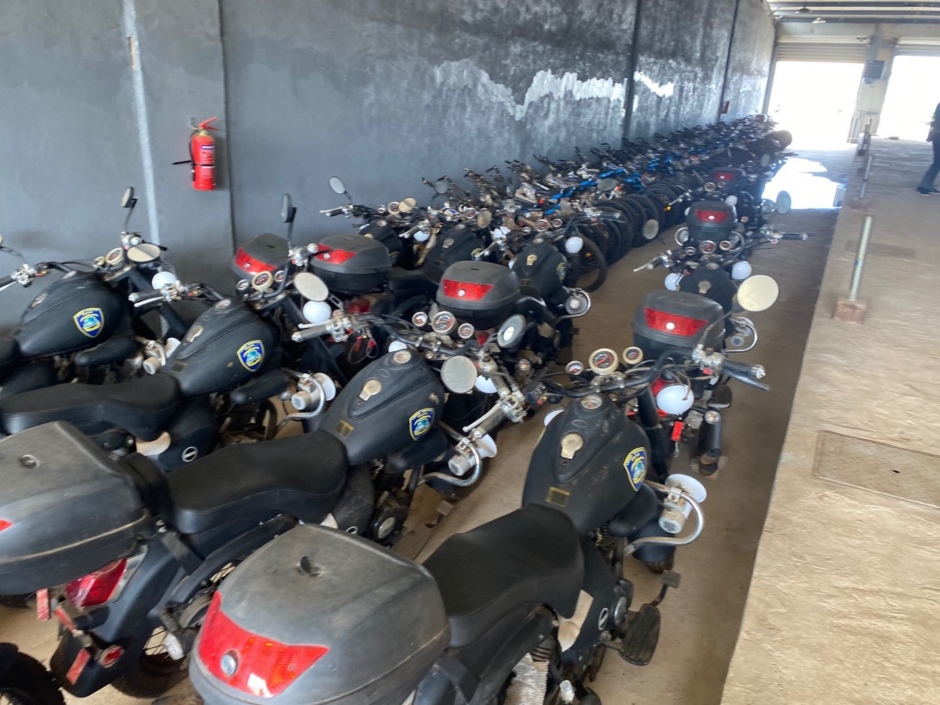
Motorbikes and bicycles to help police attend traffic accidents gather dust at LTM’s Paynesville facility.
Legal experts say the contract was a clear violation of the concession that LTM had been awarded in 2019 after it passed both houses of the Legislature and been signed into law by President Weah. The president even toured the facility after signing the law. Experts say it is illegal for the government to block or alter a concession at that point, or to award part of the agreed services to another company.
“No one individual can terminate a statute,” says Cllr. Moiefee Kanneh, a former lawyer for the Transport Ministry, who worked on the LTM concession. “If you want to nullify a concession agreement, you have to come back to the Legislature and state cause why. You cannot de-ratify a contract when there is no breach, or the element of that concession does not violate public interest.”
It appears that someone made efforts to make MDMC’s contract legal. When the concession statute was published, as required, it was missing two vital pages according to the copy LTM provided FPA/New Narratives. (Neither the Legislature nor the Foreign Ministry would provide reporters a copy of the document, which should be publicly available.) The missing pages guaranteed LTM “the exclusive right to perform the facilities and services” including setting up of a vehicle registration system, according to the original given to FPA/NN by LTM. These services went to MDMC. While LTM was reeling from the financial damage, cash flowed to Youboty’s company just as spending ahead of the October elections began to pick up.
Samuel Wlue, Liberian Transport Minister, and now an advisor to the CDC campaign, did not respond to requests seeking comment. LTM’s case is now sitting on the docket of the Supreme Court with no hearing date in sight.
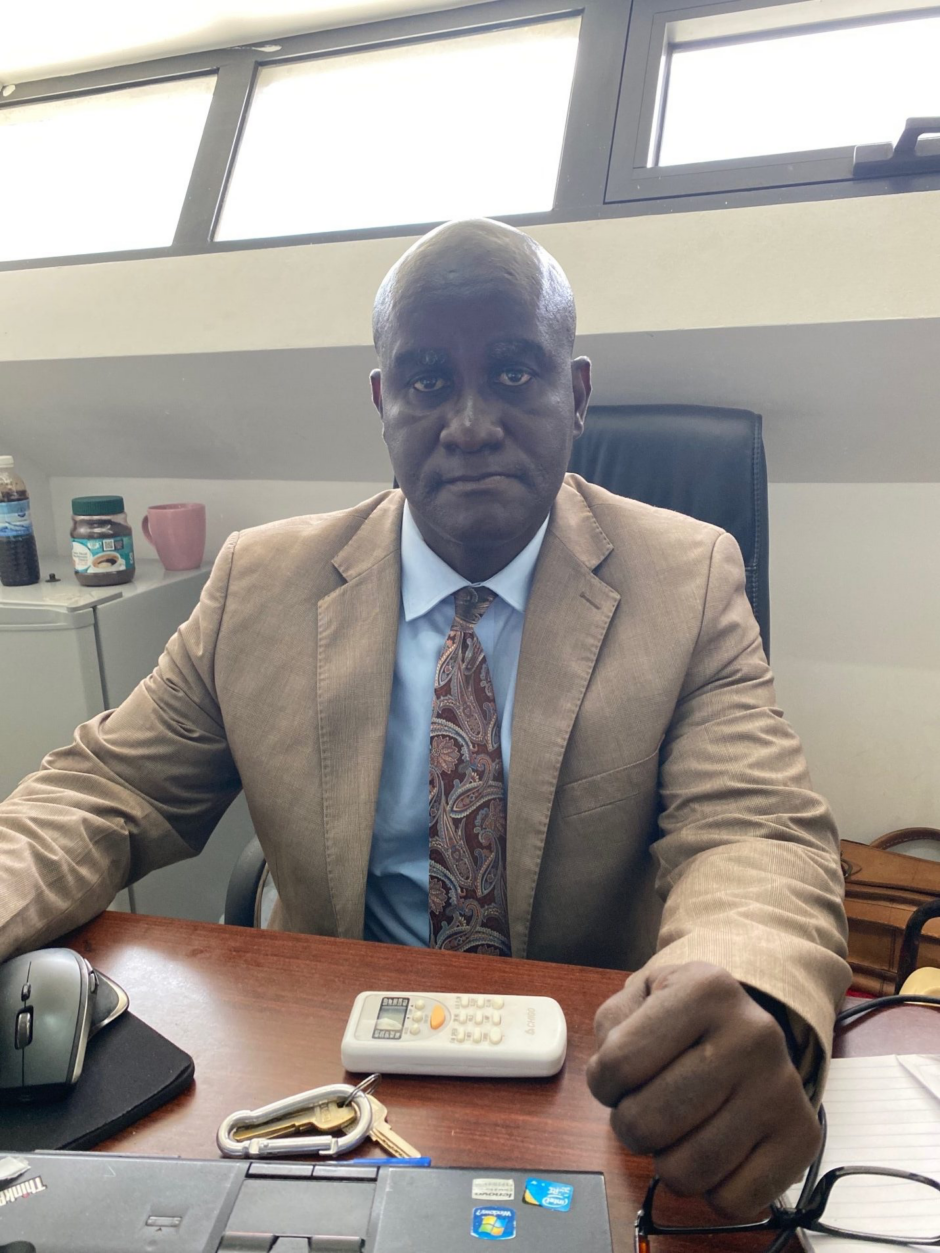
Kanneh, who believes his contract at the Transport Ministry was not renewed because of his complaints about the Youboty contract, is one of a group of former officials who are outraged at the affair and speaking out. Gregory Coleman, a Police Inspector General in the Sirleaf administration, and later Director General of the National Bureau of Concessions under Weah, had pushed for the creation of LTM during the Sirleaf administration.
“This whole thing was put on hold, because there was a contract given to Youboty,” says Coleman who does not have direct evidence that Mansion officials told Sudue not to sign the agreement. “So obviously, I mean, that is the person of contention.”
Marc Amblard, another Sirleaf police chief who had championed LTM, had no evidence the Mansion shut down LTM but said he could not see any other explanation. “If it’s already passed into law, and it’s not being implemented, I would have to assume that it’s for political reasons that is not being implemented,” Amblard says. “I don’t want to speculate, but how else will it be stopped? If it’s already in law?”
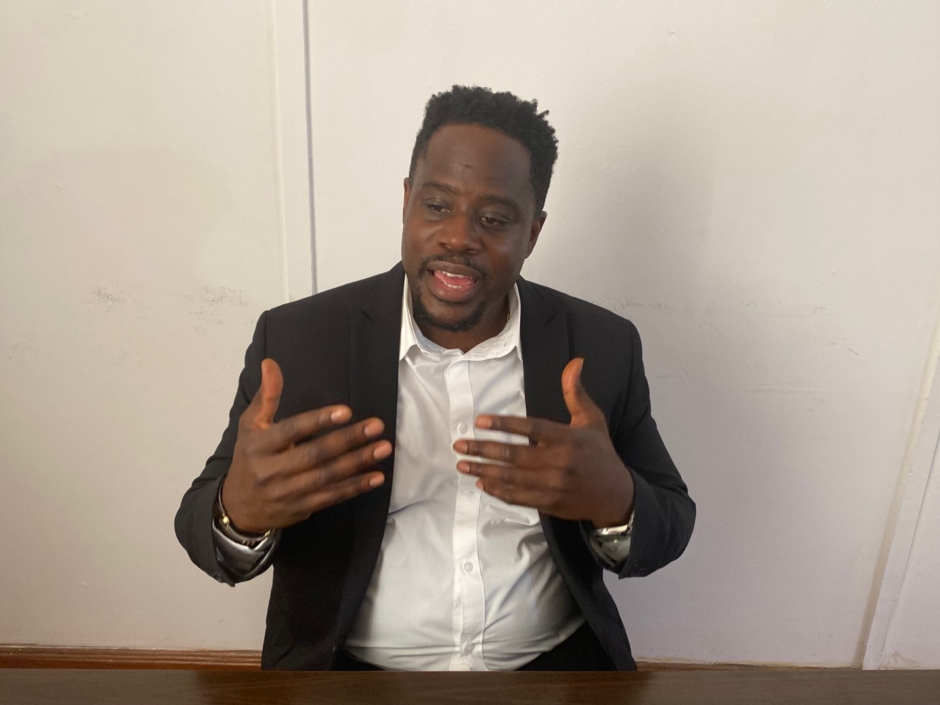
Col. Gregory Coleman, an ex-Liberian police chief with knowledge of the LTM concession.
The case has cast a pall over Liberia’s international investor community. Investors told FPA/NN that if the Mansion is willing, as it alleged to have done in this case, to subvert the rule of law and take a legally ratified concession away from an investor as well-resourced and influential as Dr. Hajj, they could do it to any one. One American investor said he, “would not put another dime into Liberia” under the Weah administration.
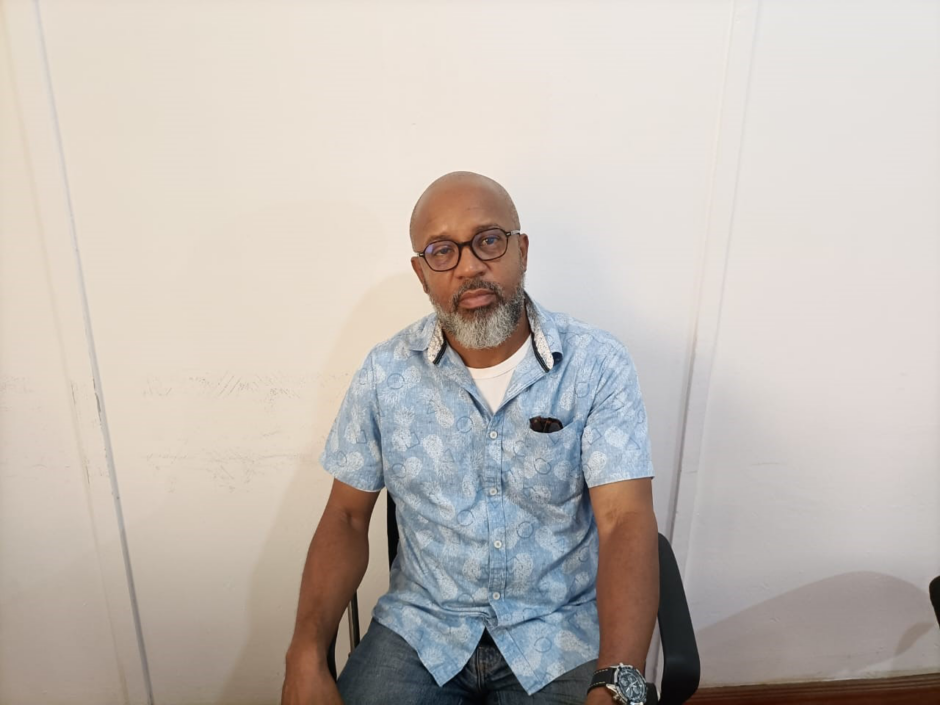
Col. Marc Amblard, an ex-Liberian police chief with knowledge of the LTM concession.
This is an obvious outcome, according to Amblard. “Would you want to do business with a country that could arbitrarily set aside their own law?” asks Amblard. “You feel that you can be unfairly treated at any given time even though it had nothing to do with your own violation of the concession agreement.”
Youboty and Ledgerhood Rennie, Information Minister, did not respond to requests for comment.
As the carnage continues on Liberia’s roads, the Paynesville facility meant to save lives remains unused. Over several visits, LTM management showed reporters through a large-covered hall set up to process dozens of cars at a time. Machines check the quality of the vehicles’ exhaust, ensuring engines are safe. Built-in pits give mechanics the ability to inspect the chassis to ensure alignment and other details. Other machines test brakes.
The registration process would see cars, trucks and motorbikes required to pass a series of inspections to ensure they are safe to drive on the road. The truck that plowed into Lucky’s tricycle, nearly two months after LTM was to begin operations, would almost certainly not have passed inspection and would not have been allowed on the road.
In another hall, 80 brand new motorbikes and bicycles sit idly. They were meant to be out on the streets helping police attend and clear road accidents. A fleet of brand-new trucks awaits the chance to tow crippled vehicles so they cannot be hit by unsuspecting drivers.
Coleman is still hopeful that the facility that he pushed for six years, through two administrations, will begin saving lives.
“It will definitely improve our public safety record,” says Coleman. “You will have a massive reduction in all of these breakdowns in strange places, where you do not have the capacity to immediately remove some of the broken-down vehicles from the road. This system was built in a way that it came with support – support for removal of broken-down vehicles; massive police support for public safety enforcement.”
As Erica Smart mourns the loss of her bother she is one victim who blames the government. She said her brother’s death showed the government does not care about the lives of its citizens, especially the poor.
“Yes, I can blame the government,” says Erica. “I want the government to take part in this situation, because it brings sorrow to me.”
As the rainy season gets into full swing road deaths numbers are growing. There is no sign that the government will relent and allow LTM to operate any time soon.
This story was collaboration with New Narratives as part of the “Investigating Liberia” project. Funding was provided by the Swedish Embassy in Monrovia. The funder had no say in the story’s content.
